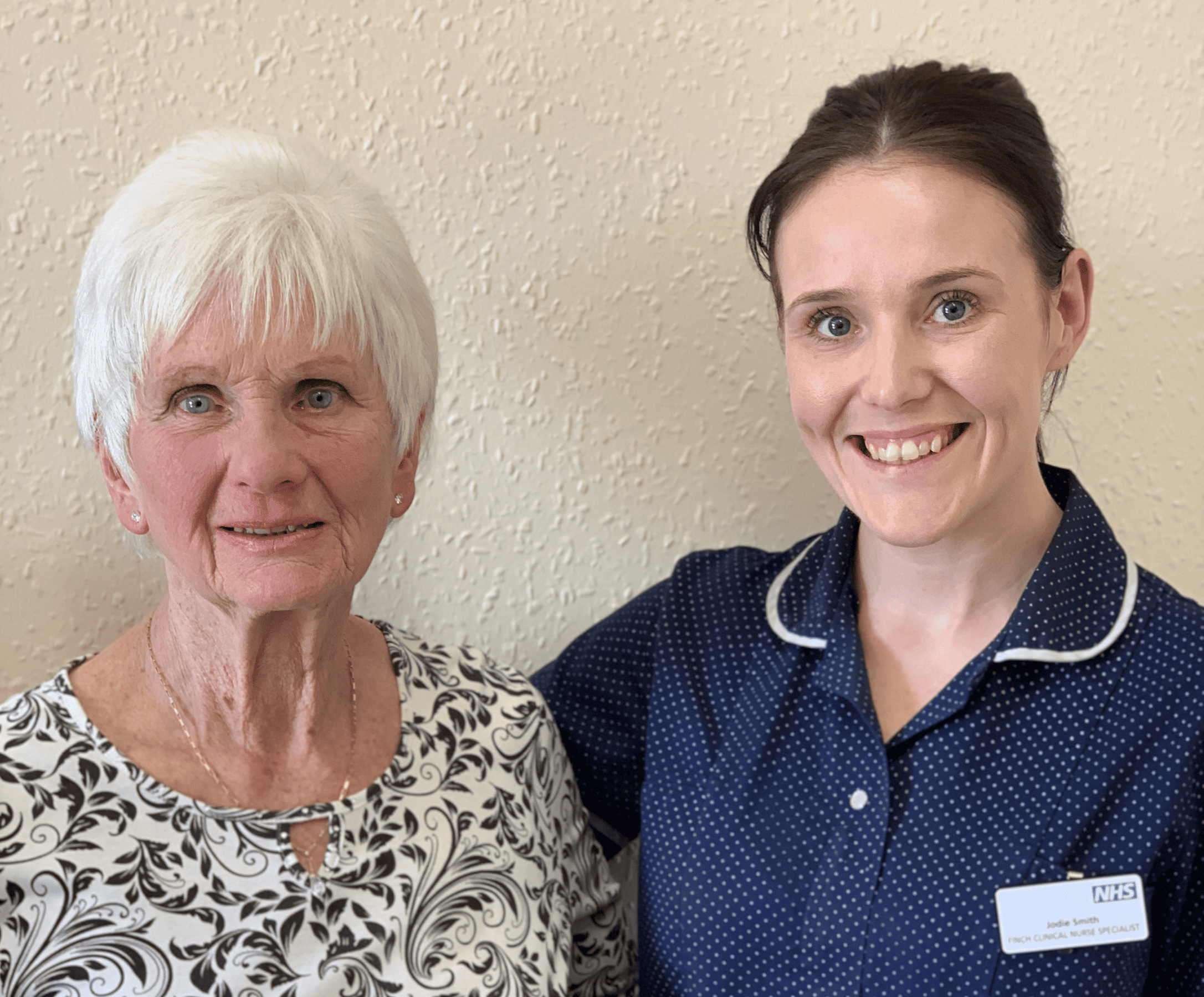
It’s always nice to get out and about – now imagine if you couldn’t take a trip to the countryside or the seaside or across the county out of fear and embarrassment at the prospect of your body betraying you. For one group of patients under a West Midlands healthcare Trust it is a very real reality, but one that they are striving to overcome thanks to the support they are receiving.
Seventy-nine-year-old Hazel Bury is just one of the patients being supported by Sandwell and West Birmingham NHS Trust’s FINCH group. FINCH stands for Faecal INcontinence and Constipation Healthcare, and offers assistance to those suffering from bowel conditions which can be life-altering.
Hazel has undergone surgery for bowel cancer twice in the past five years and suffers with anterior resection syndrome – which leads to difficulty controlling and emptying bowels. She finds the FINCH patient support days extremely beneficial, particularly in building her confidence to reclaim her independence.
At its last session the FINCH group proposed pushing the boundaries for the patients more significantly, raising the idea of a specially tailored coach trip and allowing everyone the simple pleasure of going ‘somewhere different’. Allowing patients to get out to a new location in the company of those who understand what they are going through and offering support and even a level of frivolity in the shared circumstance. The response was a definite yes from the patients. So Trust staff, with sponsorship help from delivery company Respond, worked to make it happen.
Hazel said: “The idea was a big cheer up for us all – people who don’t normally get out and socialise. It gives us a bit more freedom, to have a day out or a few hours where we feel we’re in control – instead of the complaints being in control of us.
“I lose confidence especially when going somewhere with other people when you know things might not go right but with the coach trip organised by the nurses you felt it give you confidence – it gave me confidence anyway. You know you’re not the only person. If they can do it I can do it. It’s that sort of attitude.”
It can be a tricky subject to talk about but it’s very much a reality for many, as Jodie Smith, Bowel Function CNS at FINCH explains: “We know that bowels are a taboo subject and that bowel complaints can lead to social isolation, but the feedback demonstrates that even when an individual’s bowels have been optimised and they have regained control, the social isolation can persist. We hope from this trip that the patients will feel confident enough to pursue other outings, without the safety net of the FINCH group.
“The benefit of a patient support group is that patients can share experiences, give advice, and provide emotional support as they are speaking to others in a similar situation to themselves. These patients may not have anyone else to talk to, and even if they did it can be most beneficial to speak to someone outside their immediate circle. From the patient support group friendships can be formed and this relief from isolation is gained.”
The trip proved especially enjoyable for Hazel, whose sense of normality almost led to disaster and missing her trip back.
She laughed: “We went to the Cotswolds, and unfortunately that day it poured with rain but it didn’t matter. It was a very interesting area and we wandered and wandered and I’m afraid I was a bit late back for the coach because we wandered a bit too much!”
Another patient Sue Pearce said: “I’m not one for joining groups normally, I have surprised myself with just how much I get out of it. The support days make me feel happy and secure, there is always someone to turn to. I get tips and information on how to manage my bowels.”
Jodie adds: “What patients have been asked since is if they would be more inclined to take a day out following the coach trip and the result had been a fully positive response. That was the whole aim. To help encourage patients to go out live their life and not let their bowels stop them doing what they want to do.”

